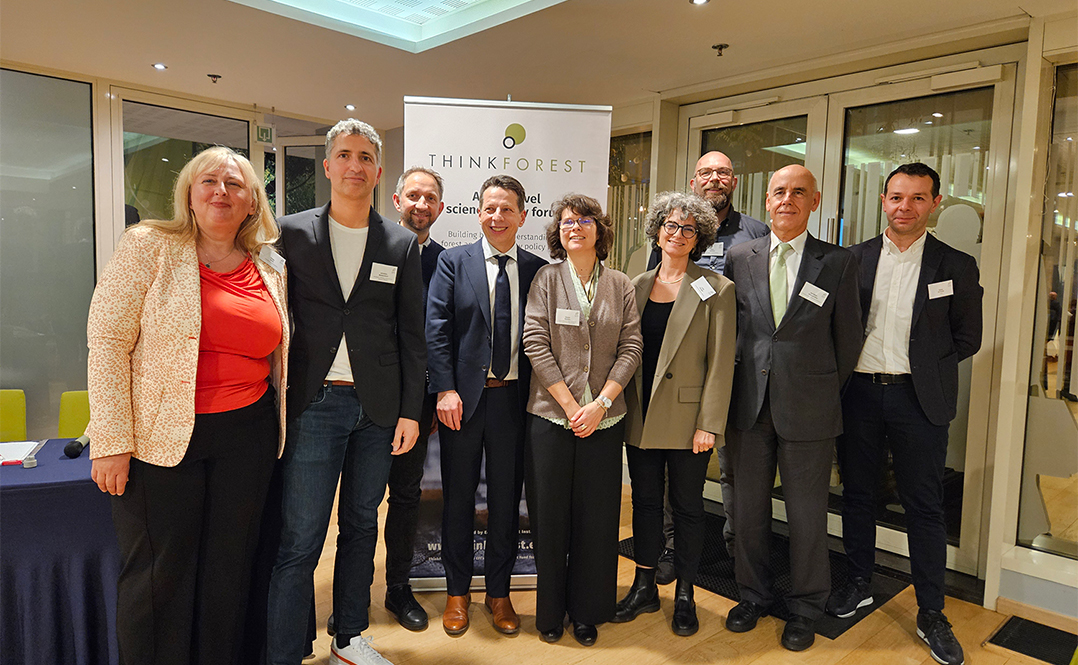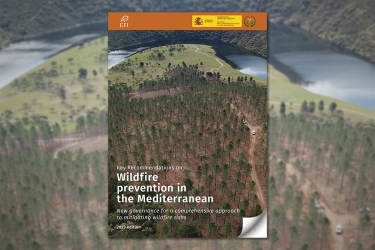Monitoring future forests

Forests play a key role in mitigating climate change, protecting and restoring biodiversity, securing the provisioning of many ecosystem services and developing the bioeconomy. Numerous forest related policies have recently been developed under the Green Deal. To ensure that the objectives and targets of these policies are met, it is crucial to have precise, complete and up-to-date information on European forests. A proposal for a new forest monitoring regulation has recently been presented by the European Commission.

On 12 December EFI’s ThinkForest organised an event in Brussels that tried to answer questions on the aims and objectives of the new forest monitoring regulation and how the proposed regulation serves the needs of EU policies. The event was organized in collaboration with the Horizon Europe projects ForestNavigator, PathFinder and ForestPaths.
During the event, Humberto Delgado Rosa (Director Biodiversity at DG ENV) introduced the proposed regulation on forest monitoring. He explained how the regulation aims to meet the need for coherent, timely and high-quality information on forests and which can feed into policymaking. The legislative proposal includes a forest data collection framework that relies on both earth observation data, for example from satellites, and ground-based data, for example coming from national forest inventories. Moreover, the regulation proposes a forest data sharing framework, and the voluntary development of integrated long-term plans or strategies by member states.
A lively scientific panel discussion explored some of the challenges of forest monitoring. Lucia Perugini, who is an expert on Carbon Farming Certification and LULUCF at the European Environment Agency, talked about how the proposed regulation can support data analysis needed climate change mitigation policies. Johannes Breidenbach, a Research Professor at the Norwegian Institute of Bioeconomy Research and coordinator of the PathFinder project, explained the challenges with regards to monitoring forest biodiversity, and multifunctionality more broadly. Martin Herold, who is head of the Remote Sensing and Geoinformatics section at GFZ Potsdam and involved in the ForestNavigator and Forwards projects, explained how earth observation and ground-based inventory data can be used together and what monitoring initiatives exist outside Europe. Finally, Susana Barreiro, Assistant Professor at the School of Agriculture at the University of Lisbon, discussed how simulation modelling can help identify what should be monitored. She also explained how simulation models can help in developing integrated long-term plans and strategies. The panel was moderated by Hans Verkerk, principal scientist at EFI and coordinator of ForestPaths.
Overall, the panellists welcomed the proposed regulation as beneficial for delivering harmonized and standardized data and they emphasized the complementarity of earth observation data and forest inventory data.
A constructive dialogue with the audience highlighted the importance of forest monitoring for enabling well-informed decision-making – and the importance of opportunities like ThinkForest for discussion and collaboration, informed by latest developments in research.
Programme and speakers: https://efi.int/policysupport/thinkforest/monitoring_future_forests/programme


